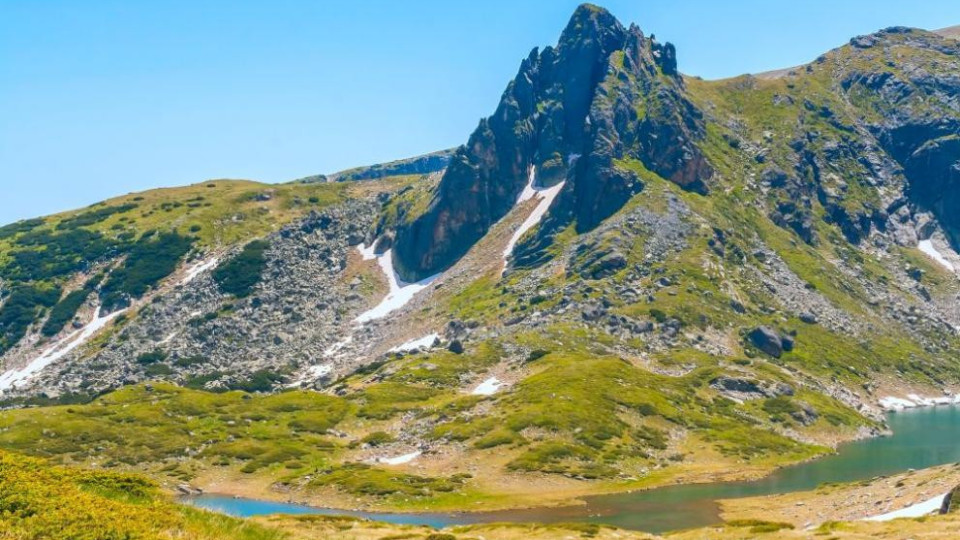A fake report about the “tragic” state of the biodiversity in Bulgaria sent to the European Commission guaranties long-term possibilities for the Greens whose main activity is the appropriation of grants.
The Executive Environment Agency announced a procurement procedure for selection of a tenderer capable of investigating the species and the types of habitats subject to reporting, in accordance with the Habitats Directive and the Birds Directive. The tender includes three lots amounting to a total of 16.9 million levs, VAT included.
The EnviMon consortium gets Lot 1 for Analysis and study of the species and the types of habitats subject to reporting, according to Art. 17 of the Habitats Directive amounting to 9.4 million leva, including VAT. Probably because the consortium does not trust the expertise of the specialists at the Bulgarian Academy of Sciences, it subcontracts the implementation of the tasks to the Serbian Institute of Biological Sciences Savisha Stoyanovich. The Serbians do not have a single square meter in Natura and they are not familiar with the scoring system, but they are the ones to perform the assessment of the status of the species and habitats in Bulgaria.
The assignment includes 212 species in four geographic regions and 440 assessments. According to the project’s timeline the investigation needs to be completed in 27 months but the Serbian scientists manage to finish it in three months, so they over-achieve the plan as good neighbors. The fact that many of the species, both plants and animals, cannot be observed in the relevant stages of development in such a short time period is another prerequisite for the observations to result in negative assessments. Envimon submits the report to the MEW one hour before the deadline. The Ministry sends it to the European Commission (EC) straight away, because otherwise a penal procedure against Bulgaria would be initiated. The EC publishes the summarized results from the observations in the different types of habitats according to the biogeographical regions: continental, alpine, Black Sea – land and Black Sea – marine. The National Association Bulgarian Black Sea alarms immediately that the Bulgarian report is not using the approved European methods and the results, the way they are presented, serve only the private interests of non-governmental ecological organizations. By quoting the dramatic results, these NGOs will be able to require massive European funding to overcome the natural cataclysms that have occurred in the country. The fake implementation of the project awarded to Envimon is also clear from the financial allocations for the activities in the four phases. Phase 2, for example, includes three activities: • Preparation of a program for monitoring and mapping; • Forming teams for field work and training of field experts; • Performance of field studies and collection of data and information on the territory of the whole country. For these most significant activities Envimon plans 690 000 BGN, including VAT. Meanwhile for the activity of support of the contracting entity in the communication with the European Topic Centre on Biological Diversity, filling of forms, review, analysis, filling of gaps and correspondence the planned amount is 7.8 million BGN, including VAT. And so, the contractor reports an expenditure of almost 8 million BGN for writing emails. In practice, however, the prepared report means that EC is in its right to stop the implementation of all significant national infrastructural projects and direct tens of millions of levs towards non-governmental organizations to “restore” the ecological balance. After the reaction of National Association Bulgarian Black Sea with a letter to the Prime Minister and the ministers of environment, regional development, economy and transport dated 29 November, the Association of the Organizations of Bulgarian Employers (AOBE) also stated its position. AOBE insisted to have the report corrected following the established European methods, rather than using the conclusions of the Serbian experts whose country is in no way connected to Natura, so they do not have any responsibilities or experience in this field. According to the opinion of AOBE, “the country must urgently require the consortium DZZD Envimon to correct the assessment of the parameter Future Perspectives using the established European methodology in the report commissioned by MEW.” They highlight that in the new report the favorable assessments have decreased almost three-fold in comparison with the previous report, from 53% to 19%, while the unfavorable perspectives have increased from 35% to 70%. The negative assessments have increased more than two times – from 3% to 8%. AOBE specify that “a more detailed scrutiny of the assessments of the state of the species in Bulgaria shows that the reason for the rapid deterioration of the status of more than 99% of the species is the score for the indicator of future perspectives… In the reports for the separate species, in many cases where the distribution of the population is unknown or is favorable, the future perspectives are again assessed as unfavorable.” According to AOBE, if the country does not urgently ask the consortium that has prepared the report to apply unambiguously and competently the European methods for assessment of the parameter Future Perspectives, then the incorrectly assessed rapid deterioration under this parameter can be overcome only by enforcement of stringent administrative bans and investment limitations. The demands of some of the most radical and commercialized environmental protection organizations in Bulgaria are exactly such: to enforce strict prohibitions and limitations with the declaration of protected zones in order to allegedly stop any economical and industrial development, construction of highways and other infrastructure on the territory of Natura 2000. This would lead to the loss of many jobs. This type of policy is in direct contradiction with the EU Action Plan for nature, people and the economy. Thirty-five percent of Bulgaria’s territory is protected by Natura 2000, but according to the report this area seems insufficient to conserve the species and habitats and therefore it must be expanded.  “In the next months there will surely be many proposals from the green organizations for designation of new zones. Our country will be unable to present any arguments against it, provided that the country itself has reported the deterioration of its own biodiversity,” warns AOBE. It turns out that the Greens are unable to achieve real support in elections. Only the infamous Toma Belev managed to become a municipal councilor in the capital. He, however, is there with a big goal: to prevent the implementation of any project connected to the renovation of the infrastructure on Vitosha. This concerns the lifts of Simeonovo and Dragalevtsi, as well as the potential construction of lifts that have existed in the past. The other thing that must not happen is the renovation of the ski zone. While the miserable state of Vitosha is used for appropriating more and more money for its “salvation” any initiative connected to the actual modernization of the mountain is doomed. The Greens may not be many, but they are more than enough to make noise and block Eagle’s Bridge. The fear of direct confrontation with the police allows the entirely illegal blockades to rage in full force. Neither the mayor of the capital, nor the prime minister dare stand against this urban terrorism. At the end of the day, the failed candidate for mayor, Maya Manolova, will try to pull dividends out of this situation. Her new “project” is ambiguous in content but apparently based on the noise that the Green are capable of creating. Furthermore, if Manolova becomes their vehicle, then her direct interest will be connected to the financing of these organizations. For the first two programming periods funded by the EU for the maintenance of the areas in Natura the total contribution is 700 million BGN. The largest share of this amount went to the Greens. The simplest example for the lack of any interest in the ecological future of the mountains in Bulgaria is that Pirin is visited by 2400 to 4000 vehicles per day, depending on the season, and the Greens are not even reacting to this fact. The construction of a second cable-car route however would be a problem, even though it means stopping the influx of vehicles which are the real problem leading to ecosystem pollution. The Greens however know that the heavier the real damage to nature caused by direct incursion (the fans of calculation of gases can estimate the real amount of waste created by 2500 cars per day or no less than a million cars per year), the easier the grants for “conservation” are to obtain. The Greens are sincerely hoping that their ridiculous recommendation to create big parking lots in the mountain will be forgotten. Meanwhile in the Austrian ski region of Schladming where the prime minister passed the presidency of the EU to his Austrian colleague, the six-seat cable car cabin was assessed as insufficiently effective on the background of five more cable cars on four adjacent hills. This is why in the summer the whole construction was taken down and replaced by a new 10-seat cabin cable car moving 20% faster than the previous. What is the reason? The formation of queues where people sometimes wait for up to 25 minutes. Apart from Maya Manolova, who is still in pursuit of new ideas, the smell of money also attracted Radan Kanev who tried to slip a petition against the construction of Struma Motorway in the area of Kresna in the European Parliament. In this case greed transformed into plain stupidity: the route is financed by Brussels because it is a part of Corridor No. 4 connecting Germany to Greece. If we want to tell all Europeans going to Greece that they have to risk their lives on the road because Radan, Maya and Toma think so, we will have to pay a sanction of 2 billion BGN. This is the amount that Bulgaria would have to return in case the motorway construction is delayed. And the construction is not yet finished because some ecologists chose the region for appropriating other funds “in the name of nature.” And so, the carousel passes from the fake Serbian report on the state of the Bulgarian ecosystems, to the obsequious behavior of a politician with an unclear position and a failed mayoral candidate, to wannabe politicians who are trying to convince Europe on our account that we are a danger to ourselves. Glasove.com
“In the next months there will surely be many proposals from the green organizations for designation of new zones. Our country will be unable to present any arguments against it, provided that the country itself has reported the deterioration of its own biodiversity,” warns AOBE. It turns out that the Greens are unable to achieve real support in elections. Only the infamous Toma Belev managed to become a municipal councilor in the capital. He, however, is there with a big goal: to prevent the implementation of any project connected to the renovation of the infrastructure on Vitosha. This concerns the lifts of Simeonovo and Dragalevtsi, as well as the potential construction of lifts that have existed in the past. The other thing that must not happen is the renovation of the ski zone. While the miserable state of Vitosha is used for appropriating more and more money for its “salvation” any initiative connected to the actual modernization of the mountain is doomed. The Greens may not be many, but they are more than enough to make noise and block Eagle’s Bridge. The fear of direct confrontation with the police allows the entirely illegal blockades to rage in full force. Neither the mayor of the capital, nor the prime minister dare stand against this urban terrorism. At the end of the day, the failed candidate for mayor, Maya Manolova, will try to pull dividends out of this situation. Her new “project” is ambiguous in content but apparently based on the noise that the Green are capable of creating. Furthermore, if Manolova becomes their vehicle, then her direct interest will be connected to the financing of these organizations. For the first two programming periods funded by the EU for the maintenance of the areas in Natura the total contribution is 700 million BGN. The largest share of this amount went to the Greens. The simplest example for the lack of any interest in the ecological future of the mountains in Bulgaria is that Pirin is visited by 2400 to 4000 vehicles per day, depending on the season, and the Greens are not even reacting to this fact. The construction of a second cable-car route however would be a problem, even though it means stopping the influx of vehicles which are the real problem leading to ecosystem pollution. The Greens however know that the heavier the real damage to nature caused by direct incursion (the fans of calculation of gases can estimate the real amount of waste created by 2500 cars per day or no less than a million cars per year), the easier the grants for “conservation” are to obtain. The Greens are sincerely hoping that their ridiculous recommendation to create big parking lots in the mountain will be forgotten. Meanwhile in the Austrian ski region of Schladming where the prime minister passed the presidency of the EU to his Austrian colleague, the six-seat cable car cabin was assessed as insufficiently effective on the background of five more cable cars on four adjacent hills. This is why in the summer the whole construction was taken down and replaced by a new 10-seat cabin cable car moving 20% faster than the previous. What is the reason? The formation of queues where people sometimes wait for up to 25 minutes. Apart from Maya Manolova, who is still in pursuit of new ideas, the smell of money also attracted Radan Kanev who tried to slip a petition against the construction of Struma Motorway in the area of Kresna in the European Parliament. In this case greed transformed into plain stupidity: the route is financed by Brussels because it is a part of Corridor No. 4 connecting Germany to Greece. If we want to tell all Europeans going to Greece that they have to risk their lives on the road because Radan, Maya and Toma think so, we will have to pay a sanction of 2 billion BGN. This is the amount that Bulgaria would have to return in case the motorway construction is delayed. And the construction is not yet finished because some ecologists chose the region for appropriating other funds “in the name of nature.” And so, the carousel passes from the fake Serbian report on the state of the Bulgarian ecosystems, to the obsequious behavior of a politician with an unclear position and a failed mayoral candidate, to wannabe politicians who are trying to convince Europe on our account that we are a danger to ourselves. Glasove.com












